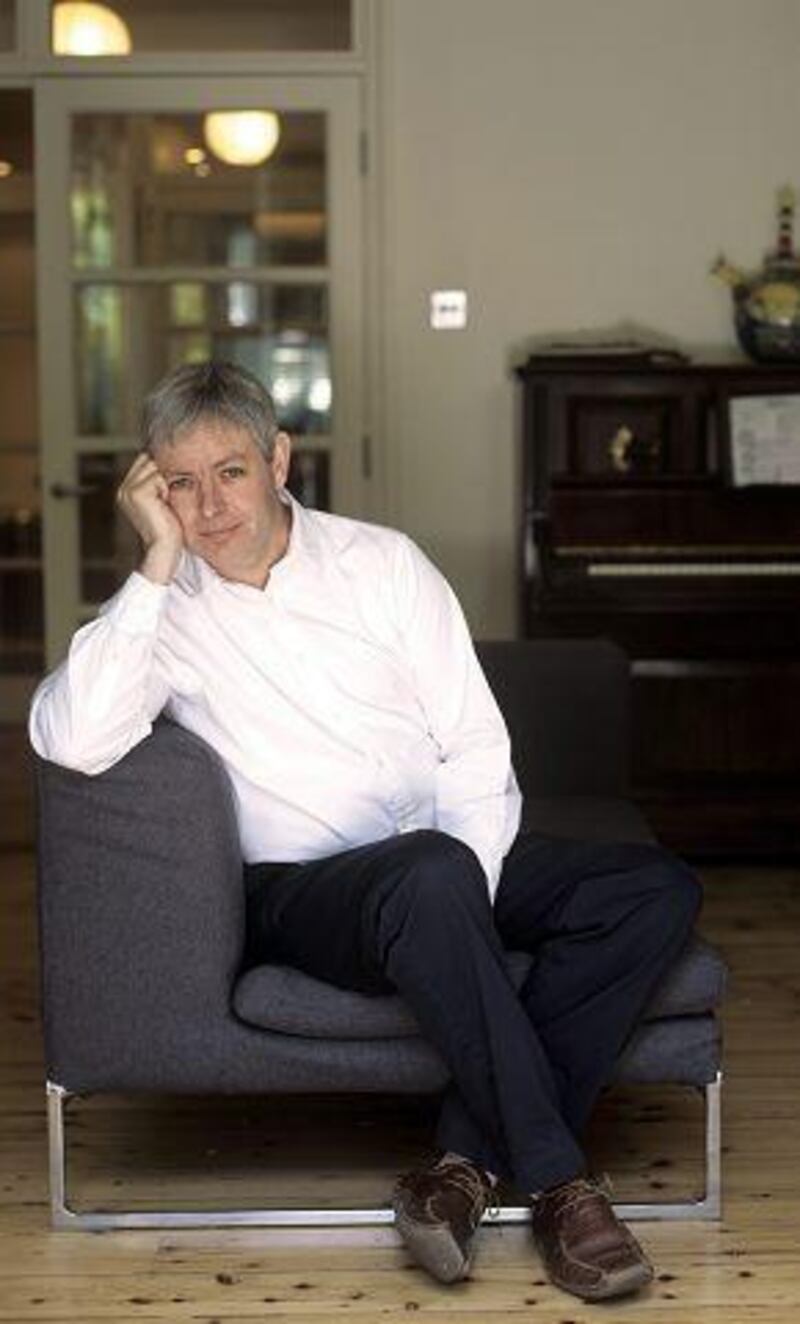Is it a musical? Is it an opera? As David Greig's Midsummer begins its run at London's Soho Theatre next week, it is tempting to suggest that this love story interspersed by gentle indie tunes from the Scottish singer-songwriter Gordon McIntyre is leading the way in a whole new genre: the play with songs. So what exactly does that mean? Well, for this duo, there had to be a less clunky way to approach the musical, and so, instead, they devised a love story where the music played constantly, where monologues segued seamlessly into spoken word, and then into song, and then back again. Midsummer was a huge success, a smash hit at the Edinburgh Festival.
When McIntyre and Greig (the former in the Scottish band Ballboy, the latter best-known for a stunning version of the Greek tragedy The Bacchae starring Alan Cumming) first collaborated in 2008, they did so out of a shared hatred of musicals. A hatred of that deeply cheesy moment when the spoken action stops, the actors seem to wink at the audience, there's a deep breath and - cue orchestra - "The hills are alive, with the sound of music".
Scratch the surface, and it's possible to point to a whole new movement of playwrights and musicians who share their opinion. At the Latitude Festival in the UK this year, one of the stand-out moments was Say Hi to the Rivers and the Mountains. The acclaimed author Jonathan Coe provided the words and the cult indie pop band the High Llamas performed the music. There were no memorable songs apart from the title track, and that was not performed by the cast but by the band - the actors stood at the front of the stage and simply spoke Coe's story of a 40-year love affair - but it worked superbly. Like McIntyre's music, the touching music of the High Llamas in the background lent a real poignancy to the proceedings.
And like McIntyre, Coe was happier listing what Say Hi to the Rivers and the Mountains wasn't - a musical or an opera or a play or a concert, even - than what it was. In the end, he settled for "spoken musical theatre". That was just about right. The key, for both plays, is the lo-fi aesthetic. These are not all-singing, all-dancing productions destined for huge stages: Midsummer has acoustic guitars rather than an orchestra, plaintive songs rather than stomping showtunes.
And this is not a phenomenon confined to Britain. Last year, in the United States, the Brooklyn indie-folk band The Lisps presented Futurity, a science-fiction story set in 19th-century Virginia. Like Midsummer, the idea was to try to create a piece of musical theatre from a starting point of disliking the formulaic musical. And in 2008, Add1ng Machine won a raft of awards in New York despite being a musical that, most critics agreed, did not really have any memorable tunes. Instead, it was the mood that Joshua Schmidt's intricate, intimate score created that made all the difference.
Even the most feted lo-fi indie musician of our times has had a go. Sufjan Stevens did not release an album in 2007 because he was working on the BQE: a "symphonic and cinematic exploration of New York City's infamous Brooklyn-Queens Expressway". This was musical theatre that again warped the conventions of the form: while a film shot by Stevens was projected in the background, an orchestra played and hula-hoopers performed on stage. There were no actual lyrics at all.
Of course, you could argue that making musicals where memorable music is not crucial is something of a cop-out. Perhaps, also, the artists involved here do not want to call their creations "musicals" because of the term's slightly uncool connotations. It would probably frighten away the very people they want to attract to the theatre. Instead, what connects all these works is a sense that music can be important to telling your story, but - and there's a subtle difference here - does not spell out in lyrical form what that story is.
Certainly that's the idea with Midsummer. McIntyre's songs do not necessarily drive the plot as much as bring out the emotion of the moment in the play. The love songs are not about the characters, Bob and Helena, struggling with their places in the world and with each other. But they might reflect how one or the other has felt about love at some point. In that sense, it is a clever, intelligent and intimate musical, rather than one that clunkingly grabs you by the tap shoes and doesn't let go until you've bought the CD. And if that does not already seem contrary enough, what about the hubris of opening a play called Midsummer in London while England endures one of its coldest winters for some time?
Midsummer runs from January 12 to February 6 at the Soho Theatre, London.





